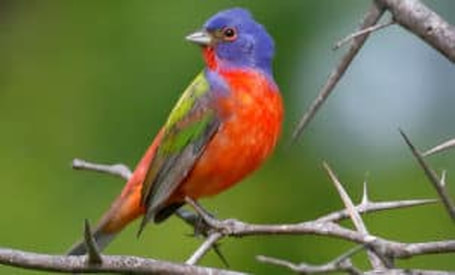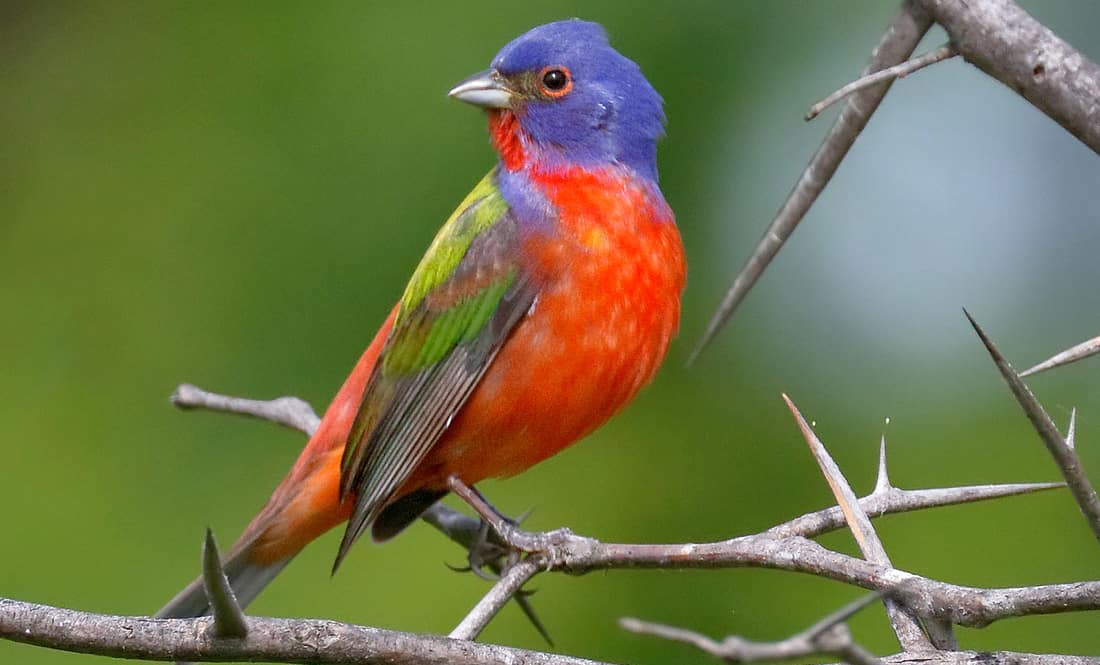Rep. Cole is the lone Oklahoma congressman voting in favor wildlife measureBy KELLY BOSTIAN
For the CCOF The U.S. House of Representatives passed a landmark bill this week that aims to keep wildlife populations off the Endangered Species List, and could bring millions of dollars to wildlife conservation efforts in Oklahoma. It passed on a bipartisan 231-to-190 vote but Oklahoma Rep. Tom Cole was the state’s only representative to vote in favor of the measure. Backers say it is a money-saving offset that empowers states to keep species away from the costly federal mandates that come with Endangered Species Act listing. Critics say it is spending the country can’t afford right now, especially with no sunset clause. The Recovering America’s Wildlife Act would amend the 1937 Pittman-Robertson Act, which provides funding for the restoration and improvement of wildlife habitat and management through excise taxes on outdoor-related equipment and firearms. It would give $1.3 billion per year to states and territories and $97.5 million per year to tribal entities. Declining wildlife species have been recognized and protected under Endangered Species Act provisions since 1973, but the law does not provide funding to keep wildlife off the list in the first place. Earlier versions of the new bill relied on revenue from energy extraction and mining activities. The current version would provide funding from the general U.S. Treasury, with states required to provide at least 25 percent in matching funds. Passage of the act could mean annual funding of more than $16 million to the Oklahoma Department of Wildlife Conservation and perhaps millions in grants more for tribes. The move would mark a historic change in the way wildlife management is funded. Cole indicated in committee comments a day prior to the House vote that his support came with some reservations and that he understood the hesitance of others. He was one of 194 House co-sponsors of the bill: 152 Democratic and 42 Republican. “Although I am a co-sponsor of this bill and am supportive, I understand my Republican colleagues on the Natural Resources Committee have concerns, particularly with the failure to provide a funding offset or sunset provision. Certainly, that is a concern I share myself, and I think the Majority should have continued working with Republicans to find a solution for this new spending,” he said. Supporters of the bill argue that offsets are not necessary because, at its core, the act is a cost-saving measure for both government and private entities. Putting that funding under a sunset clause would make the necessary long-term planning for wildlife and habitat improvement plans problematic, supporters say. “This bill will prevent wildlife from declining to the point where they qualify for Endangered Species Act protections, saving considerable money in the long run while protecting our outdoor heritage. Most Americans would prefer to invest in restoration instead of litigation,” said Lacy McCormick, a senior communications manager with the National Wildlife Federation. Mark Howery, a senior wildlife diversity biologist with the Oklahoma Department of Wildlife Conservation said the act could save money for local businesses and landowners. Most of the funding would target “species of concern,” which mostly benefit indirectly from hunting and fishing management and have little dedicated funding. Under a Recovering Act provision, the state agency’s spending specifically for endangered species would rise from about $110,000 annually to $1.5 or $1.6 million, he said. “With that, you can hopefully get some turned around to get them off the list, or moved from endangered to threatened,” he said. “Threatened status provides a lot more flexibility for businesses and landowners, which saves money.” The U.S. Fish and Wildlife Service lists 1,600 endangered or threatened species, but state agencies across the country have identified even more “in need of conservation assistance.” In Oklahoma, the list includes more than 60 such species. Birds like the painted bunting, several sparrows, warblers, and meadowlarks, are on the list. Reptiles like horned lizards and alligator snapping turtles are on the list, as well as several species of bats, fish, and freshwater mussels, Howery said. With House passage, the Senate now takes up companion legislation, which also includes bi-partisan support from 35 co-sponsors, 16 republicans, 18 democratic, and 1 independent. Kelly Bostian is an independent journalist writing for The Conservation Coalition of Oklahoma Foundation, a 501c3 non-profit dedicated to education and outreach on conservation issues facing Oklahomans. To learn more about what we do and to support Kelly’s work, see the About the CCOF page.
2 Comments
11/22/2023 03:35:21 am
Land plots located near Istanbul Airport have become an attractive option for both investors and future homeowners. Owning a plot of land in this region offers the opportunity to take advantage of the developing and growing economy and tourist attraction of Istanbul. https://turkishclassified.com/category/turkey-property-for-rent
Reply
11/27/2023 12:16:44 am
The disadvantages of home investment are as follows:
Reply
Leave a Reply. |
Archives
May 2024
Categories
All
|
Conservation Coalition of Oklahoma
P.O. Box 2751
Oklahoma City, OK 73101
[email protected]



